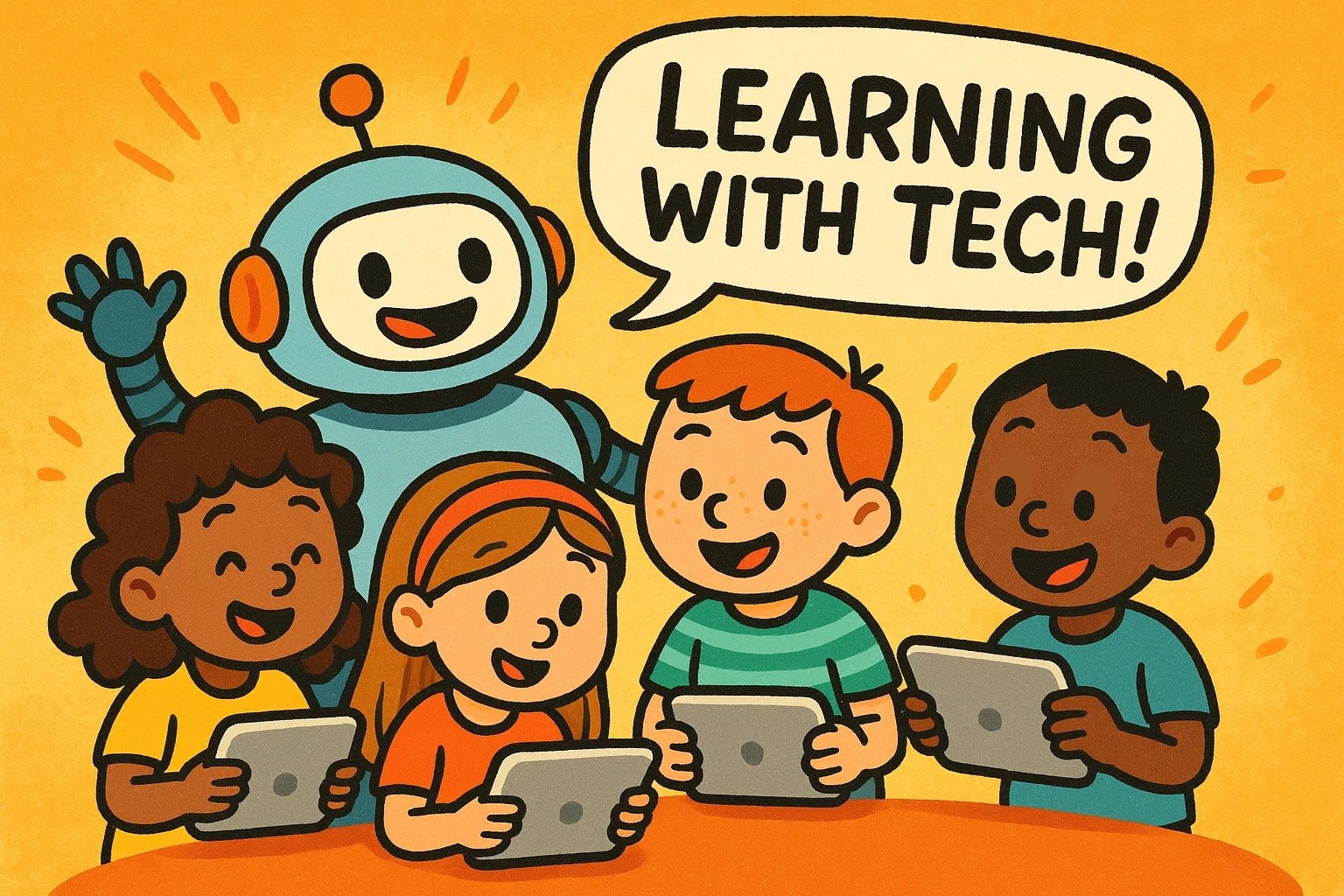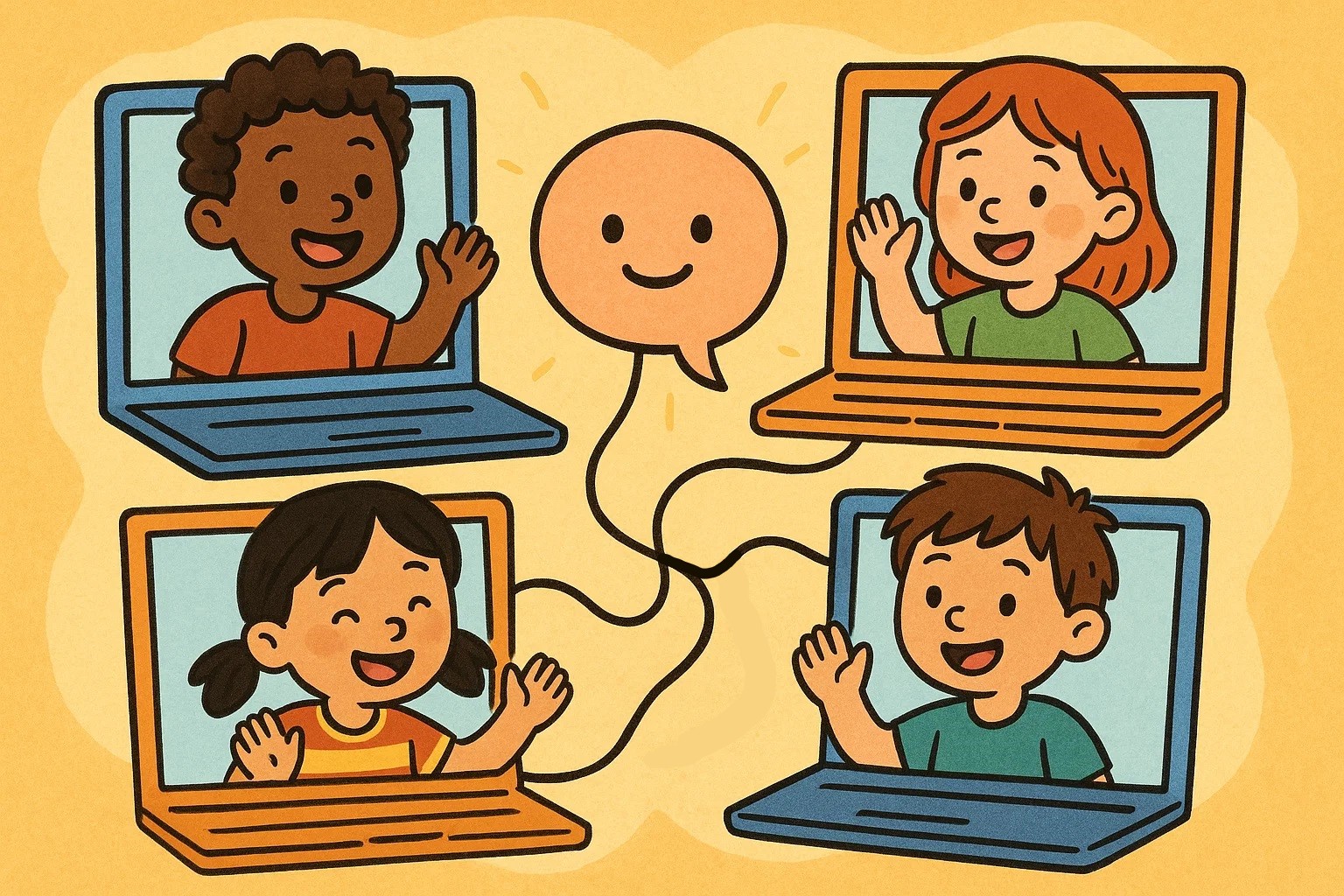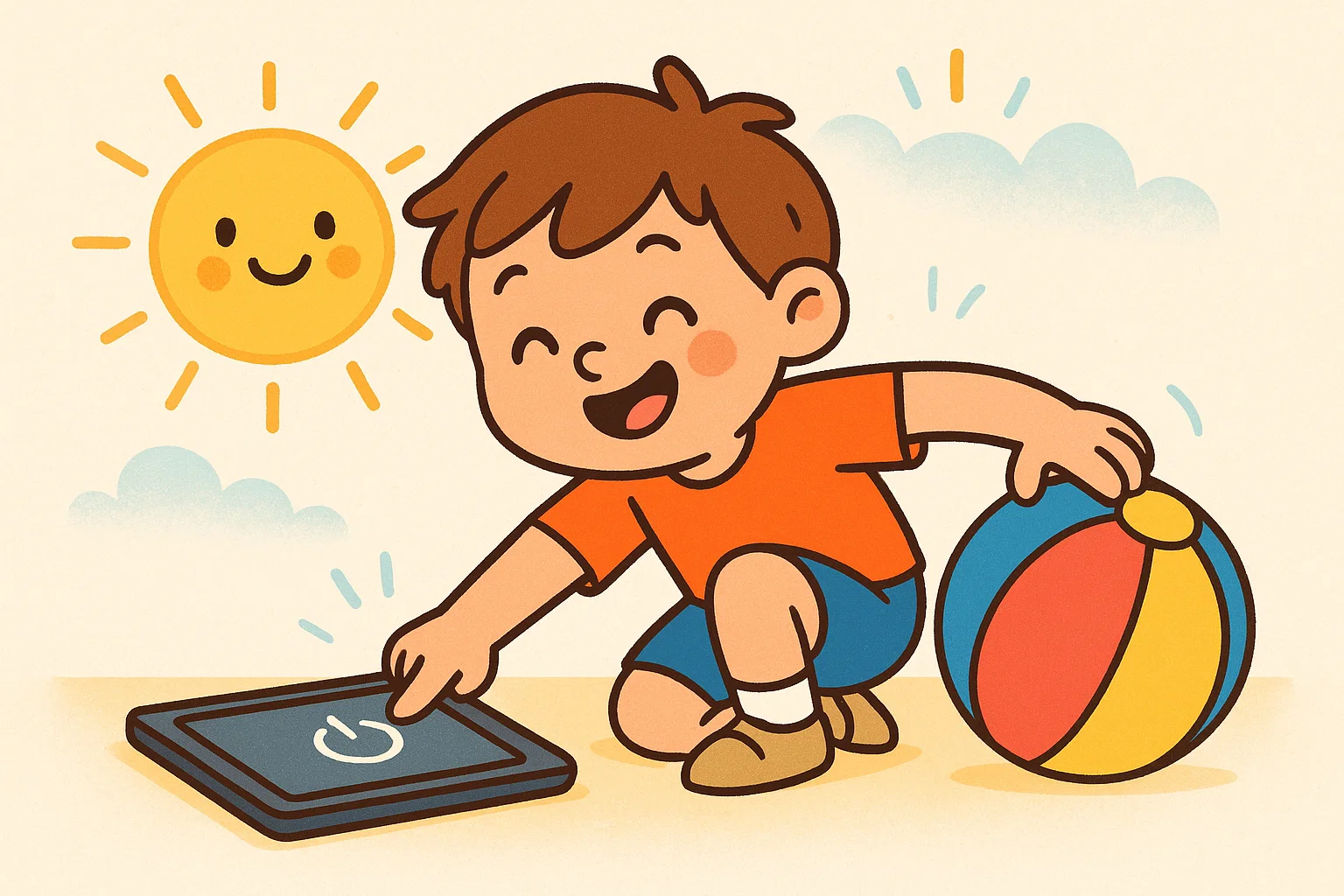Positive Effects of Technology on Child Development

In today’s interconnected world, technology has become an integral part of childhood education and development. While concerns about excessive screen time and negative impacts often dominate discussions, the reality is more nuanced. When used thoughtfully, technology can positively influence how children develop essential skills, from problem-solving abilities to social interaction capabilities.
The key lies in understanding that technology itself isn’t inherently good or bad—it’s how we integrate technology into children’s lives that determines its effects.
The Impact of Technology on Youth
Technology’s influence on young people extends far beyond entertainment and gaming. Educational technology has revolutionized how children learn, offering personalized experiences that adapt to individual learning styles and paces. Studies indicate that when children use technology appropriately, they often demonstrate improved academic performance and enhanced engagement with learning materials.
Positive Impact of Technology on Educational Opportunities 📚
Modern learning platforms provide children with unprecedented access to educational resources. Digital technology enables children to explore subjects in depth, offering interactive simulations, virtual field trips, and multimedia content that makes abstract concepts tangible.
Consider how educational apps can transform mathematics learning. Instead of memorizing multiplication tables through repetition, children can now use interactive games that make mathematical concepts visual and engaging. This approach may indicate improved retention rates and a more positive attitude toward challenging subjects.
Key Educational Benefits:
- Personalized Learning: Adaptive software adjusts difficulty levels based on individual progress
- Global Classroom Access: Children can connect with peers and educators worldwide
- Resource Availability: Digital libraries and databases provide instant access to information
- Skill Development: Children learn essential digital literacy skills alongside academic content
| Technology Type | Educational Benefit | Age Group |
| Interactive Whiteboards | Enhanced visual learning | 5-12 years |
| Educational Apps | Gamified skill practice | 3-16 years |
| Virtual Reality | Immersive experiences | 8+ years |
| Coding Platforms | Logic and problem-solving | 6+ years |
The Effects of Technology on Problem-Solving 🧩
Technology challenges children to think critically and approach problems from multiple angles. When children engage with educational games or programming activities, they develop systematic thinking patterns that transfer to real-world situations.
Research from the European University of Madrid suggests that children who use technology for creative and educational purposes show enhanced problem-solving skills compared to those with limited technology exposure. These children often demonstrate:
- Improved analytical thinking: Breaking complex problems into manageable components
- Enhanced pattern recognition: Identifying relationships and connections
- Greater persistence: Working through challenges with multiple solution attempts
- Creative approaches: Thinking outside traditional problem-solving methods
How Digital World Fosters Creativity
The digital world offers children unprecedented creative outlets. From digital art platforms to music production software, technology provides tools that were once available only to professionals. Children can now create animations, compose music, write interactive stories, and design games.
A notable example comes from Scratch, a visual programming language developed at MIT. Children using this platform have created thousands of original games, animations, and interactive stories, demonstrating how technology can amplify creative expression rather than stifle it.
Technology and Social Development 🌐

Contrary to concerns that technology isolates children, research from the Texas State University indicates that certain technological tools can actually enhance social development when used appropriately. The key is ensuring that technology use supplements rather than replaces face-to-face interaction.
The Role of Beneficial Technology in Communication
Modern communication tools enable children to maintain relationships across distances and connect with peers who share similar interests. Video calling platforms allow children to stay connected with grandparents, participate in virtual playdates, and collaborate on school projects with classmates.
Communication Benefits Include:
- Enhanced verbal expression through video calls
- Written communication skills via messaging platforms
- Cross-cultural understanding through global connections
- Collaborative skills through shared digital projects
Building Social Skills in a Digital World
Technology can help children develop crucial social skills when integrated thoughtfully into their daily routines. Online collaborative projects teach children how to work in teams, resolve conflicts, and communicate effectively with diverse groups.
Multiplayer educational games, for instance, require children to negotiate rules, share resources, and coordinate strategies—skills that directly translate to real-world social situations. Children learn to:
- Navigate social hierarchies within gaming communities
- Practice empathy through role-playing scenarios
- Develop leadership skills by organizing group activities
- Build cultural awareness through diverse online interactions
Technology as a Tool for Cultural Awareness
Digital platforms expose children to diverse perspectives and cultures in ways that traditional education methods may not achieve. Through virtual exchanges with international schools, children develop global awareness and cultural sensitivity.
Educational platforms now offer immersive cultural experiences where children can virtually visit historical sites, attend festivals from different countries, and interact with peers from various backgrounds. This exposure to technology helps broaden worldviews and fosters inclusive thinking.
Managing Screen Time ⏰

Effective technology use requires thoughtful boundaries and intentional planning. The goal isn’t to eliminate screens but to ensure that technology usage supports rather than hinders healthy development.
Setting Healthy Limits for Digital World Exploration
Research from the American Academy of Pediatrics suggests that quality matters more than quantity when it comes to screen time. Children benefit most when technology use is:
- Purposeful: Aligned with learning or creative goals
- Interactive: Encouraging active participation rather than passive consumption
- Social: Involving family or peer interaction when possible
- Balanced: Complementing physical activity and real-world experiences
Recommended Screen Time Guidelines:
- Ages 2-5: 1 hour of high-quality programming daily
- Ages 6+: Consistent limits that don’t interfere with sleep, physical activity, or family time
- All ages: Co-viewing and discussion of content with caregivers
The Effects of Technology on Attention and Focus
While excessive screen time can negatively impact attention span, strategic use of technology may actually enhance focus and concentration. Educational technology designed with attention in mind can help children develop sustained focus through:
- Gamification elements that reward sustained attention
- Progressive difficulty levels that maintain appropriate challenge
- Break reminders that prevent overstimulation
- Mindfulness apps designed specifically for children
Studies suggest that children who use technology purposefully often show improved attention spans compared to those with unrestricted access to entertainment-focused screen time.
Using Screen Time for Productive and Educational Goals
The most significant positive impact occurs when children use technology as a tool for creation rather than just consumption. Productive technology use includes:
Creative Activities:
- Digital art and animation projects
- Music composition and recording
- Video production and editing
- Creative writing and storytelling
Educational Pursuits:
- Online courses and tutorials
- Research projects and presentations
- Language learning applications
- STEM-focused programming activities
FAQs on Positive Effects of Technology
How can technology improve my child's problem-solving skills?
Technology enhances problem-solving through interactive challenges, coding activities, and educational games that require strategic thinking. Children learn to break complex problems into smaller steps and test multiple solutions systematically.
What are the social benefits of technology for children?
Technology can improve social skills by enabling global connections, facilitating collaborative projects, and providing platforms for creative expression. Children learn communication, teamwork, and cultural awareness through well-designed digital experiences.
How much screen time is appropriate for educational purposes?
Quality matters more than quantity. Focus on interactive, educational content with clear learning objectives. The American Academy of Pediatrics recommends 1 hour daily for ages 2-5, with flexible limits for older children based on content quality and life balance.
Can technology help children with learning difficulties?
Yes, assistive technology and adaptive learning platforms can be particularly beneficial for children with learning differences. These tools provide personalized support, alternative learning methods, and accommodation for various learning styles and needs.
How do I ensure my child's technology use remains positive?
Maintain active involvement in your child’s digital experiences through co-viewing, discussion, and setting clear boundaries. Choose high-quality educational content, encourage creative use, and ensure technology complements rather than replaces physical activity and social interaction.

